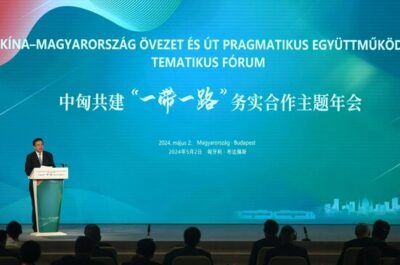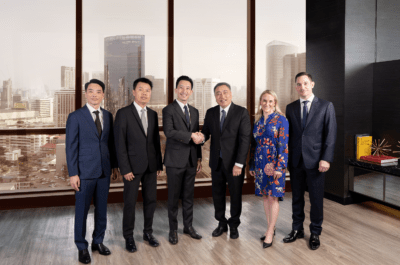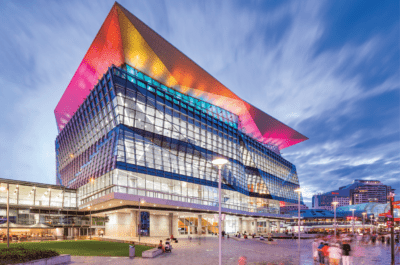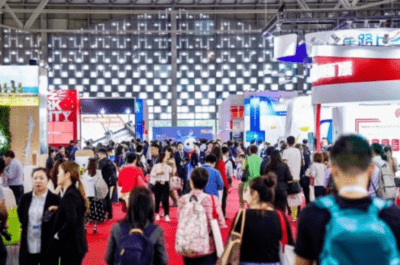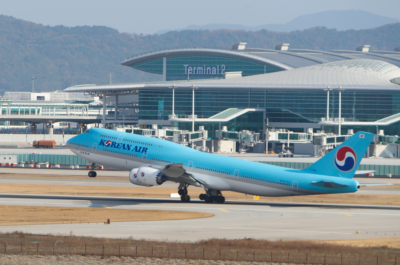…
‘A Pro-active Approach To Security’ was the very serious topic of discussion at this month’s inaugural Thought Leadership Forum, co-ordinated by strategic travel management company, Reed & Mackay. Chaired by BBC security correspondent, Frank Gardner OBE, among the speakers was the president of Trident Hotels which includes the Oberoi Mumbai and head of aviation security for Virgin Atlantic.
Attended by over 80 directors and travel representatives from the world of finance, insurance, media, oil, shipping and law, to name just a few, the forum showcased the importance of traveller security and the policies and procedures that companies need to have in place.
Frank Gardner OBE introduced the event with a powerful statement on the current security state of the nation. By using terrorist examples he highlighted that security threats are constantly evolving and changing and that safety measures and checks therefore need to be regularly reviewed and updated.
He then introduced the first speaker, Rattan Keswani, president of Trident Hotels, a company which has first-hand knowledge of dealing with a disaster when the Oberoi Hotel Mumbai was the first of ten targets in a terrorist attack on the city on 26 November 2008. 10 gunmen stormed the hotel, set it aflame and held people hostage.
Mr Keswani reported on the challenges faced during the 60-hour siege that affected them, how the company has fared in the aftermath and the changes that Trident Hotels have implemented as a result. Whilst they had drills in place, huge investments have since been made in upgrading their security measures both in terms of equipment and training. He concluded that terrorist incidents cannot be battled by single corporate organisations alone and that countries need to find more ways to gather and share intelligence focused on preventative counter terrorist measures instead of learning and adapting each time incidents happen.
Following on, Andy Blackwell, head of aviation security at Virgin Atlantic spoke on the importance of creating, implementing and regularly updating a Safety and Security Policy. He advised on “a hearts and minds proactive approach to safety and security to help deliver resilience, where everyone is responsible – from senior managers to front line staff. What’s more, this policy must be communicated as non-negotiable and demonstrated regularly.” He instructed that the framework of such a policy will be influenced by regulation, but that it is important to exceed mandated standard where possible, retain a level of flexibility and should be formed by looking at future security predictions in addition to the existing threats.
A more sober topic also raised was the Corporate Manslaughter and Homicide Act 2007 and the implications that this had on UK companies. Fiona Gill, a partner for Davies Arnold Cooper LLP reported on the importance of an employers’ duty of care to their employee and the legal implications of not having a policy in place.
She warned that an organisation can be held accountable for an individual’s injury or death due to negligence whilst travelling on business and this can extend to individuals within a company where there has been consent, connivance or neglect of a director, managing secretary or other similar officer accountable for traveller safety. This trend of wider corporate accountability is set to continue and the fines for a business are unlimited. She highlighted that regular risk assessments are therefore of utmost importance, ensuring advice is up-to-date and frequently communicated.
The forum culminated with a discussion on delivering smart messages with smart tools for travellers and accountable managers, which was led by Matthew Judge, group director of Anvil Group, a firm specialising in providing ‘Crisis Avoidance Services.’ He said a policy needs to be dynamic and there was a need for incident monitoring and, just as importantly, a filter to sanitise what is communicated to the traveller. Faultless, fast response times can provide employees with useful alerts and reports.
Mr Judge offered an insight into where the industry is heading by looking at future technology and effective ways of monitoring, tracking and communicating incidents and threats which may impact a traveller. This helps minimise operational risk and assists corporations with compliance of ‘duty of care’ obligations.
The forum finished with a question and answer session and panel debate, the final close addressing the question of whether corporate travel is becoming more dangerous. Both Mr Keswani from Trident Hotels and Mr Blackwell from Virgin Atlantic gave a reassuring response that with more sharing of information from government and travel partners, travel is becoming safer.
Summing up, Richard Boardman, CEO of Reed & Mackay who organised the event said, “we believe we are leaders in the pro-active management of travel and with our Incident Management Unit our aim is to pre-empt any situation and inform travellers with a solution before they are inconvenienced. Operating this wholly owned service 24 hours a day, using information from key trusted partners, we strive to continually improve through innovative solutions that will better support the safety needs of our travellers.”
Vicky is the co-founder of TravelDailyNews Media Network where she is the Editor-in Chief. She is also responsible for the daily operation and the financial policy. She holds a Bachelor's degree in Tourism Business Administration from the Technical University of Athens and a Master in Business Administration (MBA) from the University of Wales. She has many years of both academic and industrial experience within the travel industry. She has written/edited numerous articles in various tourism magazines.
